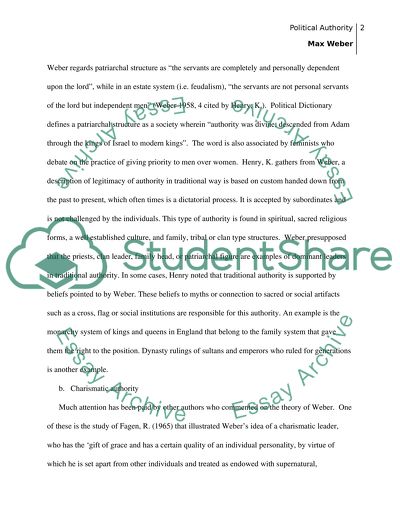Cite this document
(“Discuss Max Weber's concept of ideal types in political authority, Essay”, n.d.)
Retrieved from https://studentshare.org/miscellaneous/1562999-discuss-max-webers-concept-of-ideal-types-in-political-authority-with-reference-to-real-world-examples
Retrieved from https://studentshare.org/miscellaneous/1562999-discuss-max-webers-concept-of-ideal-types-in-political-authority-with-reference-to-real-world-examples
(Discuss Max Weber'S Concept of Ideal Types in Political Authority, Essay)
https://studentshare.org/miscellaneous/1562999-discuss-max-webers-concept-of-ideal-types-in-political-authority-with-reference-to-real-world-examples.
https://studentshare.org/miscellaneous/1562999-discuss-max-webers-concept-of-ideal-types-in-political-authority-with-reference-to-real-world-examples.
“Discuss Max Weber'S Concept of Ideal Types in Political Authority, Essay”, n.d. https://studentshare.org/miscellaneous/1562999-discuss-max-webers-concept-of-ideal-types-in-political-authority-with-reference-to-real-world-examples.


